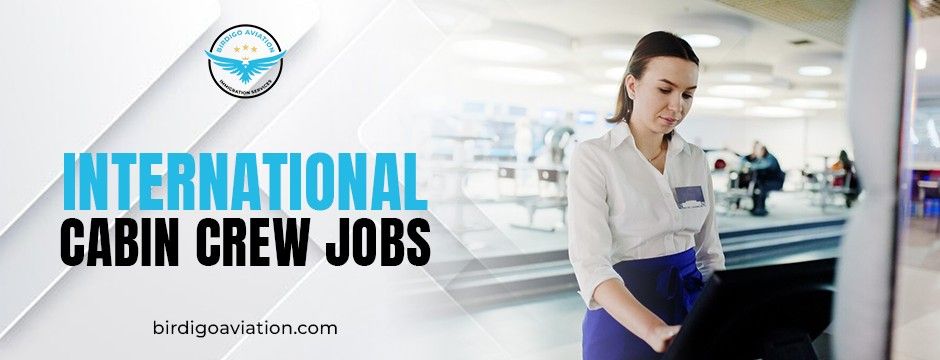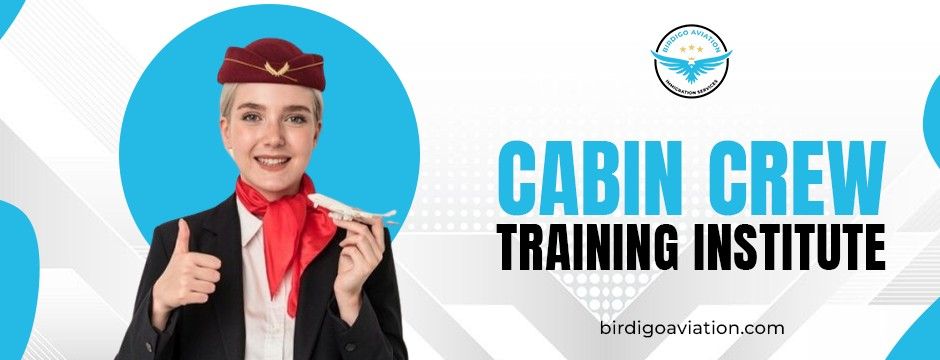The allure of soaring through the skies, exploring new destinations, and delivering exceptional service to passengers makes a career as an international cabin crew member highly sought after. However, this dynamic profession demands a unique blend of technical expertise, interpersonal skills, and adaptability. Airlines worldwide seek individuals who can ensure passenger safety, provide top-notch service, and navigate the challenges of international travel with grace.
In this blog, we’ll delve into the essential skills that aspiring cabin crew members must cultivate to stand out in the competitive International Cabin Crew Jobs industry. From mastering safety protocols to refining communication skills, these competencies are essential for a successful career in the skies. Whether you’re just starting your journey or looking to enhance your existing skills, understanding and developing these attributes will set you on the path to securing your dream job as an international cabin crew member.

Safety and Emergency Protocols
The primary responsibility of any cabin crew member is to ensure passenger safety. This encompasses knowledge of emergency procedures, first aid, and the ability to remain calm under pressure. Airlines prioritise candidates who can demonstrate proficiency in these areas, as they are vital during unforeseen situations. For instance, Aer Lingus offers a six-week paid training course covering essential safety procedures, customer service, first aid, and aviation regulations.
Exceptional Communication Skills
Clear and effective communication is paramount in cabin crew training. Crew members must relay safety instructions, address passenger concerns, and collaborate with colleagues seamlessly. Strong verbal and non-verbal communication skills ensure that information is conveyed accurately and efficiently, fostering a safe and comfortable environment for all onboard.

Customer Service Excellence
Providing outstanding customer service is at the heart of the cabin crew profession. This involves anticipating passenger needs, addressing inquiries promptly, and handling complaints with professionalism and empathy. A positive attitude and willingness to go the extra mile can significantly enhance the passenger experience and reflect well on the airline’s reputation.
Cultural Sensitivity and Language Proficiency
International flights bring together passengers from diverse cultural backgrounds. Cabin crew members must be culturally aware and respectful, ensuring that all passengers feel valued and understood. Additionally, proficiency in multiple languages can be a significant asset, enabling effective communication with a broader range of passengers and enhancing service delivery.
Teamwork and Collaboration
The cabin crew operates as a cohesive unit, and effective teamwork is essential for smooth flight operations. Collaborating with colleagues in International Cabin Crew Jobs, supporting one another, and maintaining a positive team dynamic contribute to the overall success of the flight and the well-being of passengers.
Adaptability and Problem-Solving
The aviation industry is dynamic, with situations often changing rapidly. Cabin crew members must be adaptable, capable of adjusting to new schedules, routes, and unforeseen challenges. Strong problem-solving skills enable crew members to address issues efficiently, ensuring minimal disruption to passengers and operations.
Physical Fitness and Stamina
The role of a cabin crew member can be physically demanding, requiring long hours on one’s feet, handling luggage, and managing various tasks simultaneously. Maintaining good physical health and stamina is crucial to performing duties effectively and reducing the risk of fatigue-related issues.
Emotional Resilience
Dealing with diverse passenger personalities, potential conflicts, and high-pressure situations requires emotional resilience. Cabin crew members must maintain composure, manage stress, and approach challenges with a calm and collected demeanour, ensuring a positive environment for both passengers and colleagues.
Attention to Detail
Meticulous attention to detail ensures that all safety checks are completed, service standards are upheld, and passenger needs are met promptly. This skill is vital in maintaining the high standards expected in the aviation industry and preventing potential issues before they arise.
Time Management and Organisation
Efficient time management and organisational skills are essential for cabin crew members to juggle multiple responsibilities, such as conducting safety demonstrations, serving meals, and addressing passenger requests, all within a limited timeframe. Being well-organised by a cabin crew training institute ensures that tasks are completed promptly and to the highest standard.

Technology and Digital Skills
In today’s modern aviation industry, cabin crew members are increasingly expected to be comfortable with technology. From operating in-flight entertainment systems and electronic devices to using airline apps for passenger management and communication, digital proficiency can enhance efficiency and service quality. Being tech-savvy allows crew members to quickly adapt to new tools, troubleshoot minor issues, and provide seamless experiences for passengers, giving them an edge in a competitive job market.
End Notes
Embarking on International Cabin Crew Jobs is both rewarding and challenging. By developing and honing these essential skills—safety protocols, communication, customer service, cultural sensitivity, teamwork, adaptability, physical fitness, emotional resilience, attention to detail, and time management—aspiring professionals can position themselves for success in the competitive aviation industry.
For those looking to gain a comprehensive understanding and practical experience in these areas, enrolling in a specialised cabin crew training program can be immensely beneficial. Programs like the one offered by Birdigo Aviation provide aspiring cabin crew members with the knowledge and skills necessary to excel in the field. Our courses cover a wide range of topics, ensuring that graduates are well-prepared to meet the demands of the profession.

